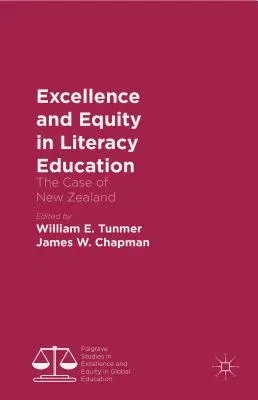Excellence and Equity in Literacy Education: The Case of New Zealand (2015)Hardcover - 2015, 19 June 2015

Qty
1
Turbo
Ships in 2 - 3 days
In Stock
Free Delivery
Cash on Delivery
15 Days
Free Returns
Secure Checkout

Part of Series
Palgrave Studies in Excellence and Equity in Global Educatio
Print Length
244 pages
Language
English
Publisher
Palgrave MacMillan
Date Published
19 Jun 2015
ISBN-10
1137415568
ISBN-13
9781137415561
Description
Product Details
Book Edition:
2015
Book Format:
Hardcover
Country of Origin:
US
Date Published:
19 June 2015
Dimensions:
21.59 x
13.97 x
1.6 cm
ISBN-10:
1137415568
ISBN-13:
9781137415561
Language:
English
Location:
London
Pages:
244
Publisher:
Weight:
449.06 gm